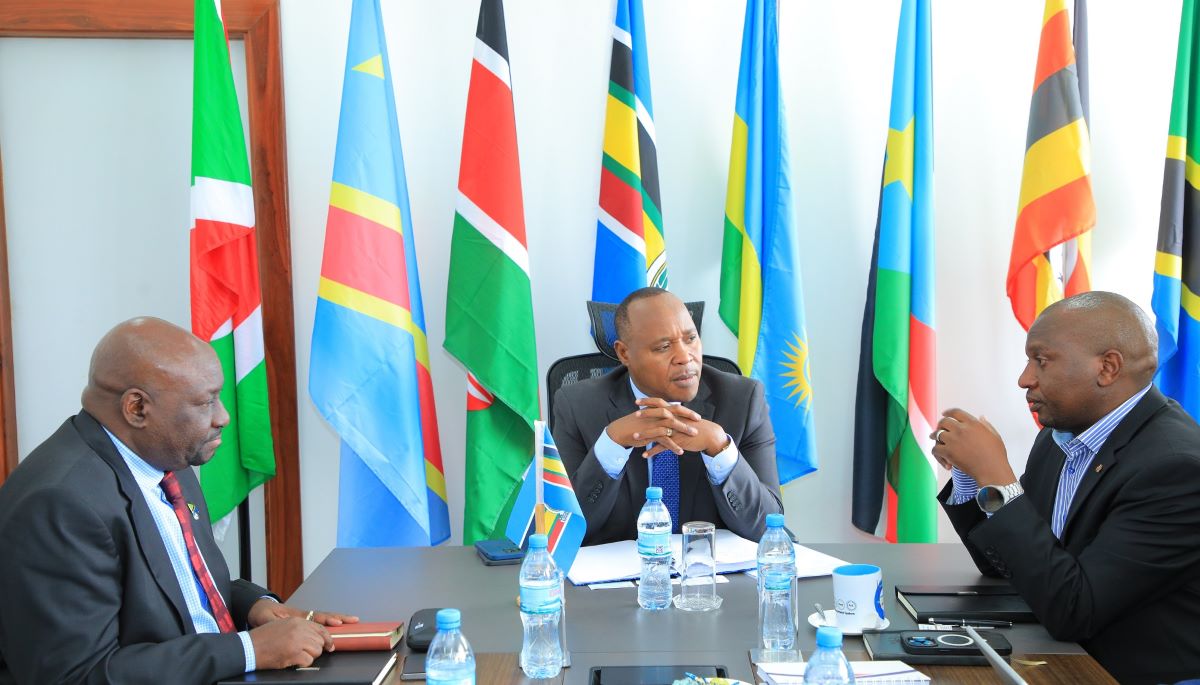
Media Councils from the East Africa region have established and formally registered an association dubbed the East African Press Councils Association, that brings together regulators from Kenya, Tanzania, Uganda, and Rwanda.
The Association plans to hold its inaugural meeting through a regional media regulation and content moderation summit in Arusha, where the East African Community (EAC) is domiciled in a meeting that will bring together regulators, high-ranking government officials, policy makers, editors, and journalists to raise the issue of protection and promotion of media freedom protocols to the regional leaders.
Plans to reach out to the media regulators from DRC, Ethiopia, Burundi, Somalia, and South Sudan are at an advanced stage.
In a meeting in Arusha, Media Council of Tanzania (MCT) Executive Secretary Mr Kajubi Mukajanga, who is the chair of the association, Media Council of Kenya (MCK) CEO Mr David Omwoyo, the association Secretary and the Secretary General of East Africa Community Dr Peter Mathuki, noted that the spirit behind the establishment of the EAPC was due to the similar nature of the media regulation systems, media consumption patterns, media development and press freedom concerns among the countries.
The meeting took place at the East Africa Community headquarters based in Arusha Tanzania, in preparation for the inauguration of the East Africa Press Council (EAPC).
MCT Executive Secretary Mr Mukajanga presented a short background on the formation and registration of the East Africa Press Council noting that it was aimed at promoting media regulation within the region.
“The Regional Press Council will aim to promote media regulation development and address issues on press freedom among journalists in the region”, said Mr Mukajanga.
Mr Omwoyo highlighted the focus areas of the EAPC noting its benefits for the media industry and the potential for improved collaboration and standardization across the region.
“The EAPC will provide a platform focused on promoting regional press freedom, monetisation of digital platforms to raise sustainable income for media houses, and capacity building for media workers”, stated Mr Omwoyo.
“We realised that our media development and regulatory mandate is cross-border and therefore we cannot restrict our mandate to geographical borders. This was also necessitated by our frequency of trade areas”, Omwoyo added.
EAC Secretary Dr Peter Mathuki welcomed the formation of the association and expressed his support for the initiative, emphasising its importance in coordinating the media in the region under one umbrella.
“We work closely with such institutions because they are cross border and they cut across. Once you are fully established, we can give you an observer status to legally enable you to attend meetings of the summit and various councils”, remarked Dr Mathuki.
"The observer status will accord the media the advantage of their views and ideas mainstreamed into policy through direct communication with the heads of states during the summits”, he said.
Hon Mathuki pledged full support and commitment to convince the Council during its meeting to grant the media observer status for proper coordination of information within the East African Community.
He urged the team to make deliberate efforts to reach out and recruit more members from EAC partner states to join the Press Council in order to create a sense of ownership. At the same time, he directed his team to assist with coordination for ease of communication with representatives from the remaining member states.